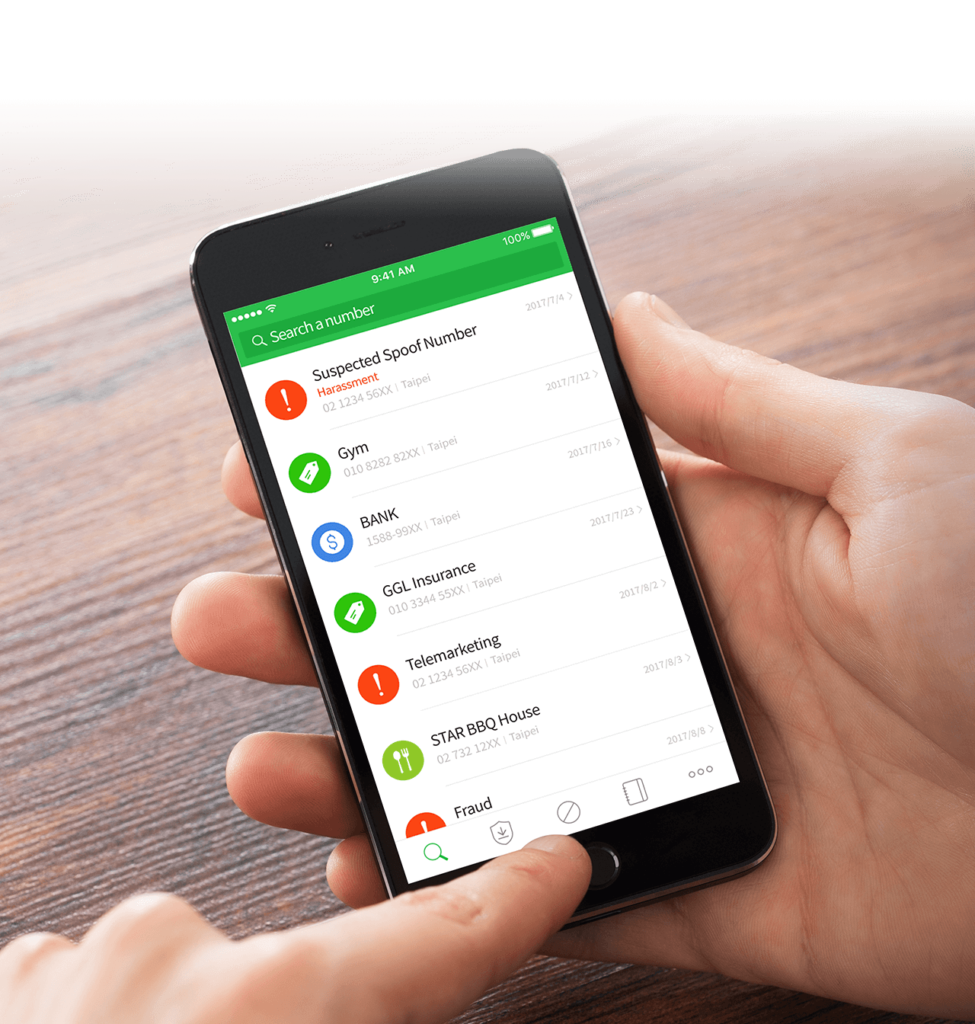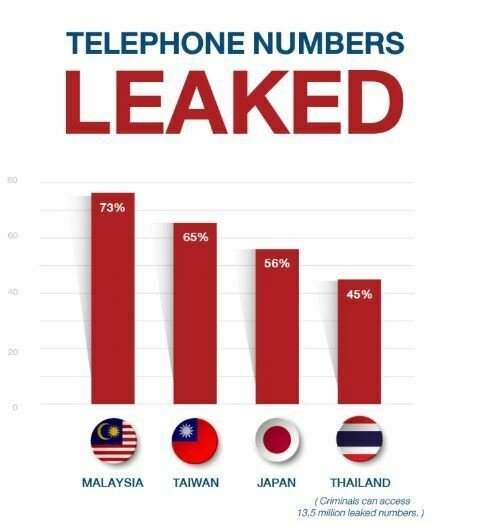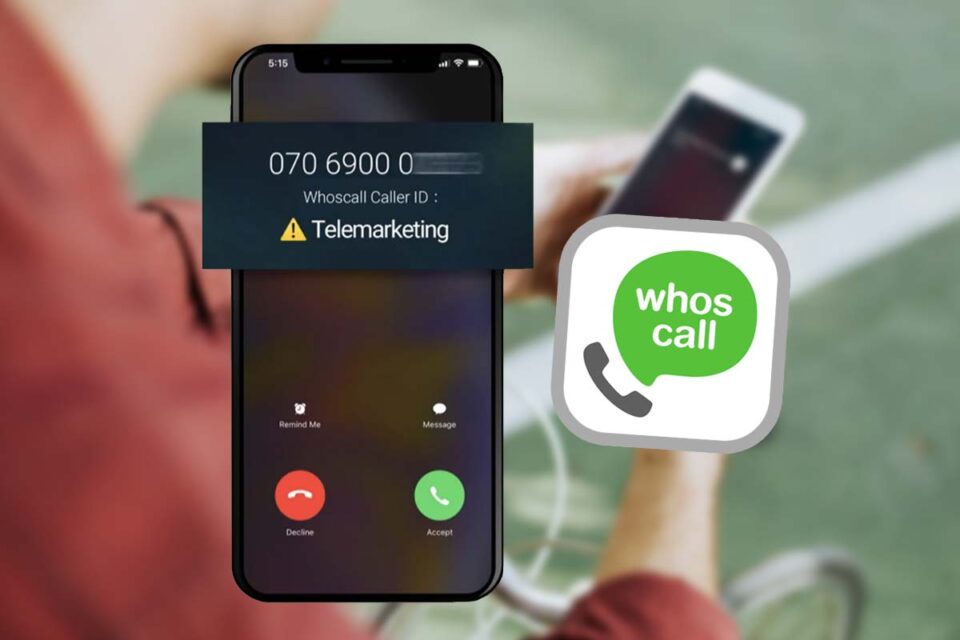The Whoscall Thailand Annual Report 2022 discloses a 165% spike in scam calls and the disclosure of over 13 million Thai cell numbers. Fraud efforts increased to 17 million last year, with 7 out of every 10 Thai texts being either scam or spam, and up to 45% of Thai phone numbers being exposed.
Whoscall, the anti-fraud caller ID mobile application, highlighted the growing problem of scam calls and messages in its annual report, claiming that it recognized 405.4 million scam calls and messages worldwide in 2022.

Scam calls in Thailand climbed by 165% in 2022, resulting in 17 million scam calls. According to the research, 45% of all Thai mobile phone numbers (-13.5 million digits) were leaked over the year. The problem demonstrates the global proliferation of scams and security risks.
Manwoo Joo, Gogolook’s Chief Operational Officer, stated, “The growing threat of fraudulent operations, and their impact on the anti-fraud business.” According to Fortune Business Insight, the market is expected to reach US$129.2 billion by 2029, with a compound annual growth rate of 22.8%.
With the rise of generative AI and vulnerabilities in organizational digital transformation, fraudulent technologies and their effects are predicted to worsen in the future. To address the growing threat of fraudulent activities, Gogolook is collaborating with various strategic partners in Thailand and around the world to develop creative ways to combat these risks and protect our clients from malicious assaults.
Our coordinated efforts aim to provide comprehensive anti-fraud protection while also ensuring the safety and security of Whoscall users.” Titinun Suttinaraphan, Gogolook’s SEA Regional Marketing Director, has raised the alarm about the ubiquitous problem of fraudulent activities and the necessity for comprehensive anti-fraud measures.
Titinun emphasized the disturbing number that 73% (324 million) of all SMS texts received by Thai citizens are spam or false. Scam phone calls grew by 165% from 6.4 million in 2021 to 17 million in 2022.
Scammers prioritize text messages due to their high penetration rates at little cost, and SMS messages are used as a tactic to ‘First Contact’ potential victims and deceive them into clicking phishing sites to steal information.
The most common topics utilized in scam mails are loans (often claiming to be from the government or a bank) and access to gambling sites (both are forbidden in Thailand). Thieves use messages like ‘you’ve won an award,’ ‘your bank loan is ready,’ and ‘your government support is approved’ to convince phone users to click phishing links or register a LINE account to help them carry out their scam.”
Frauds are customised for different countries, with distinct formats and hotspots based on local situations. Thailand tops the list in terms of fraud search and identification (calls and messages included) per capita among Whoscall subscribers, with an average of 33.2 calls and messages checks each year. This compared to 17.5 checks in Taiwan (down 20%) and 16.5 checks in Malaysia (up 15%). This chart emphasizes the pervasiveness of scams in various countries.

Emerging scams in Thailand closely follow current issues and trends in the country, and now phishing text messages and calls related to loans, Cost-On-Delivery e-commerce scam, government officials impersonation, and fake part-time job announcements from TikTok and other well-known platforms are on the rise.
To effectively combat fraud, governments have adopted anti-fraud regulations, formed specific bodies to deal with scams, and organized private organizations and celebrities to raise public awareness of scams and fraud.
In Thailand, there is collaboration between the public sector (The Royal Thai Police, NBTC) and the business sector (Whoscall, mobile network operators, etc.) to promote awareness about fraud prevention.
Private data leaks are frequently used by scammers to obtain contact information prior to conducting their attacks. Leaks can occur when company or government databases are hacked, or when consumers fill out surveys, psychological tests, or forms on phishing sites.
To reduce hazards from the start, Gogolook, the developer behind Whoscall, works with Constella Intelligence, an international digital risk prevention service provider, to analyze phone number breaches in various major regions. According to the findings, 45% of Thai phone numbers are leaked. Login passwords, phone numbers, and names are the most commonly leaked private information, followed by nationality, email, address, and birthday.

Each piece of released information can result in a different danger scenario. Online banking or social networking accounts, for example, can be compromised if login credentials are disclosed. When scammers gain access to identities, phone numbers, and even payment and shopping records, they can quickly launch phone and message attacks. Users can be protected by using two-factor authentication for online services, changing strong passwords on a regular basis, and identifying phone calls and texts with Whoscall.
As the COVID-19 pandemic increased the use of internet services, frauds have increased in velocity across countries, with no indications of stopping down. To help prevent fraud, Whoscall recommends that users follow the following guidelines:
– Do not click: If you receive a link in an SMS, do not open it, especially if it looks to be from a bank or an unknown number. Banking firms in Thailand are not permitted to send links via SMS.
– Do not fill: If you receive an SMS requesting personal information or a request to update your username/password or financial information with a link to a suspicious website, do not provide any personal information.
– Don’t ignore: Consumers may join the battle against phone scams and fraud by reporting suspicious or fraudulent numbers using the Whoscall app to protect themselves and help spread the word to the community.




